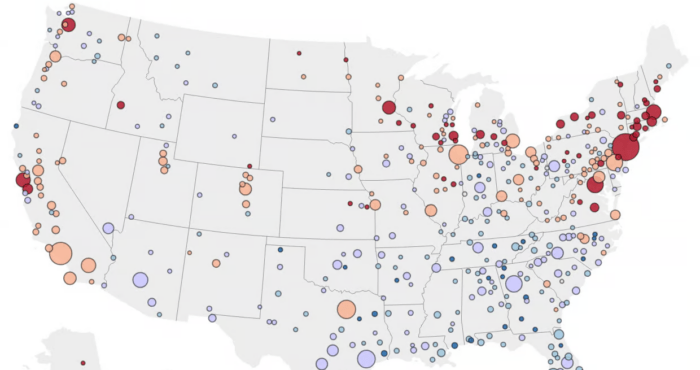May 2025 Real Estate MARKET UPDATEBY: D. MICHAEL BURKE, Mich Kanigsberg, & … Continue reading...

Paradise Luxury Group: Where Your Dream Home Becomes Reality
As we move further into fall, the Southwest Florida real estate market is showing intriguing shifts in both listing activity and pricing dynamics. Buyers and sellers are recalibrating their approaches as interest rates fluctuate, inventory ebbs, and seasonal changes bring a familiar uptick in activity to our region. Here’s a closer look at what’s happening in our market as of November 1, 2024.
The past six months have painted a picture of a fluctuating inventory landscape. Since the peak of 17,022 active listings in early June, inventory numbers had a steady decline through the summer, with 15,256 listings by early September. October showed a slight recovery to 15,745, and November follows this upward trend with 16,561 active listings currently on the market. This recent increase marks the second consecutive month of growth, suggesting that sellers are gradually reentering the market as we approach the holiday season.
With inventory levels experiencing slight gains, price adjustments are also becoming a significant factor. In the past seven days alone, there have been 1,131 price decreases. This ongoing pattern indicates that sellers are taking a more competitive approach to attract buyers amid shifting demand.
Despite the inventory rebound, the months’ supply of inventory has continued to trend downward since its March high, a sign of slightly stronger buyer demand relative to inventory levels. Currently, Lee County holds 6.6 months of inventory, while Collier County is slightly higher at 7.1 months. These levels indicate a balanced market but hint at a slow shift in favor of buyers if the trend continues.
Days on the market (DOM) have climbed, reaching 83 days in Lee County and 93 days in Collier County. Higher DOM figures suggest that properties are taking longer to sell, likely due to shifting buyer sentiment and the impact of increased mortgage rates. This longer timeframe can be a crucial consideration for sellers aiming to move properties before the new year.
After a promising dip in mortgage rates following the Federal Reserve’s September meeting, rates have since rebounded, ticking up by about 0.75% to 1%. Currently, the 30-year fixed rate stands at just over 7%, impacting buyer affordability and lending a sense of urgency to some active buyers. While some prospective buyers may be adjusting their budgets or postponing purchases, those able to navigate the current rate environment are finding slightly more favorable market conditions than earlier in the year.
With the start of November, Southwest Florida is already seeing signs of the return of seasonal residents. Traffic has noticeably increased, and car carriers are becoming a common sight once again as snowbirds bring vehicles down for the winter. This seasonal influx traditionally adds energy to the real estate market, with increased buyer interest and a more dynamic rental landscape, as many seasonal visitors look for short-term options.
Southwest Florida’s real estate market as of November 2024 is balanced but shifting, with higher DOM, stabilizing inventories, and the latest rate hike potentially impacting buyer behavior. However, the beginning of the season brings a renewed energy and optimism to the area. As more visitors arrive and bring activity to the housing market, both buyers and sellers will have new opportunities in a changing market. For those considering a sale, this may be an opportune time to list and adjust pricing to stand out, while buyers may benefit from negotiating in a market that is showing signs of a gentle swing in their favor.
As always, staying informed and strategically adjusting to the current market is key. Whether you’re buying, selling, or just exploring, understanding these local dynamics can help you make the best real estate decisions in Southwest Florida’s unique market.
Last 7 Days:
"*" indicates required fields


May 2025 Real Estate MARKET UPDATEBY: D. MICHAEL BURKE, Mich Kanigsberg, & … Continue reading...
